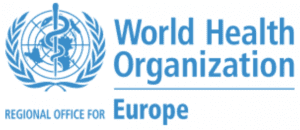WHO Europe: Comment on Draft European Program of Work
The European office for the World Health Organization (WHO) has opened an online consultation on its proposed European Programme of Work (EPW) entitled “United Action for Better Health”. The EPW sets out the future priorities for WHO’s Regional Office for Europe. It builds on the mandate that the WHO’s Regional Director for Europe received from Member States after his election last year.
 The consultation will gather feedback from all actors on how the EPW can be implemented successfully. WHO Europe recognizes that achieving better health involves a whole of society approach and as such needs support of individuals as well as national and local institutions, international partners and the wider community, including civil society, academia, stakeholders and the private sector.
The consultation will gather feedback from all actors on how the EPW can be implemented successfully. WHO Europe recognizes that achieving better health involves a whole of society approach and as such needs support of individuals as well as national and local institutions, international partners and the wider community, including civil society, academia, stakeholders and the private sector.
All who would like to contribute are requested to do so.
WHO Europe’s EPW, “United Action for Better Health” supports WHO’s Thirteenth General Programme of Work (GPW13). It sets out a vision for how WHO/Europe can better support countries in meeting citizen expectations on health for the future.
This includes four flagship initiatives:
- behavioural insights,
- mental health,
- digital health,
- immunization.
Alcohol policy in WHO Europe’s EPW
Under the core priority 3 “Promoting health and well-being” the EPW also address alcohol. This core priority consists of five focus areas:
- Local living environments that enable health and well-being;
- Safer, healthier and better lifestyles;
- Safer health care;
- Strategic intelligence on levels and inequalities of health and well-being; and
- Review well-established programmes, assessing their need for rejuvenation and improved efficiency through innovation in terms of digitalization, technology and organization.
Only the second focus area contains specific mention of action on alcohol.
a) Support ministries of health in their efforts to mobilize political leaders around public health measures (such as regarding nutrition, tobacco, alcohol, obesity, traffic accidents) that can reduce the burden of NCDs.”
However, evidence shows that a number of other focus areas are also impacted by alcohol harm. For instance,
- Local living environments that enable health and well-being; 1.b) Further support initiatives such as Healthy Cities, the Regions for Health Network, Health Promoting Hospitals and Health Promoting Schools, and the child, adolescent and age-friendly local environments and settings approach – cities role in using alcohol policy as catalyst for child health and development and for creating inclusive, healthy public spaces is an important dimension to tackling alcohol harm in Europe.
- Safer, healthier and better lifestyles; 2.b) and c) target nutrition, obesity and physical activity – but a specific target on alcohol would be necessary for the WHO Europe region to actually come to grips with its alcohol burden.
- Strategic intelligence on levels and inequalities of health and well-being; 4.a) Develop robust metrics and indices on health and well-being (including metrics and indices for early childhood development; the quality of support to ageing; the quality of end-of-life care; inequalities in quality and access to care; health and health care for vulnerable groups and migrants; and avoidable premature death); 4.b) Create opportunities for national policy dialogue on inequalities, including the health and well-being of marginalized, underserved and vulnerable groups; and 4.c) Collaborate with the social care sector to identify and map subgroups of the population in need of specific outreach to compensate for unmet need for care – are all containing potential focus on and action for children from families with alcohol problems, alcohol harm in older people, access to services for people with alcohol use disorders, and more.
- Review well-established programmes, assessing their need for rejuvenation and improved efficiency through innovation in terms of digitalization, technology and organization; 5. b) Child and adolescent health and development; sexual and reproductive health; maternal and newborn health – evidence and analysis have shown that all three of these aspects are adversely affected by alcohol harm and thus alcohol prevention should feature in this focus area and its targets.
The EPW will be presented to ministers and representatives for health from the 53 Member States in the WHO European Region for their endorsement at WHO’s annual governance meeting, the 70th session of the WHO Regional Committee for Europe, in September this year.
—
Participate in the consultation
Access the online consultation here.
